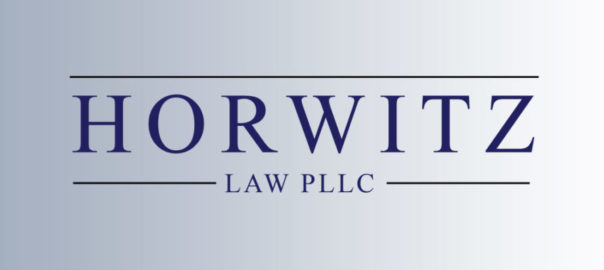ScotBlog Readers:
The delinquent editor of this unreliably updated blog has started a new project: A weekly newsletter devoted to Tennessee Court of Appeals opinions. The first version is reprinted below, though future versions won’t be published here. If you like what you see, you can subscribe here: https://horwitz.law/intermediate-scrutiny-blog-signup-form/.
A snappy weekly newsletter from the lawyers at Horwitz Law, PLLC summarizing the week’s decisions from the Tennessee Court of Appeals.
January 1–5, 2024
- “Extremely intoxicated, hostile, and belligerent” Army lieutenant makes a series of increasingly poor decisions. After a night out drinking at a bar during a bachelor party, he removes his shirt, places it on the ground, and starts urinating on it. He then gets himself arrested and charged with public intoxication, resisting arrest, and assault on a police officer. Afterward, he engages in extensive Facebook messenger correspondence with his “companion” from the evening—distinct from his “then-girlfriend, now wife”—in an attempt to ascertain what happened, and she tells him exactly how intoxicated, aggressive, and violent he was. The Secretariat of bad judgment then sues his arresting officers “for defamation and negligence per se” (claiming, among other things, “that he was not intoxicated, aggressive, or violent when he was arrested”). During the litigation, he repeatedly conceals and otherwise lies about his damning correspondence with his “companion,” which he alternately claims did not exist, he forgot about, his wife told him to delete, and/or was work product created at the direction of his attorney. Davidson County Circuit Court: Your “blatant prevarication and misconduct warrants the most severe sanctions,” so you are ordered to pay over $60,000 in fees and costs, and all of your claims are dismissed with prejudice. Tennessee Court of Appeals: And those sanctions “were directly related to the discovery abuses and were not excessive under the circumstances.” (DAH)
- After Husband and Wife divorce, Wife sues Husband based on a provision of their marital dissolution agreement that says she gets half the equity in their formerly shared home “when the house sells.” Chancery Court for Montgomery County: Wife gets half the equity as of the date of the Parties’ divorce in 2019. Tennessee Court of Appeals: No, wife gets half the equity as of the date of the house’s sale in 2023. But Husband gets an unjust enrichment credit for the twenty-two consecutive monthly payments that he has already paid Wife based on their alleged oral agreement about the amount of her equity interest, even though the agreement violates the statute of frauds. This case is otherwise remanded so Husband can introduce evidence about improvements and other expenditures he made and so Wife can introduce evidence that she’s entitled to reimbursement for her rent because Husband kicked her out before the house was sold. Also, the relevant provision of the Parties’ “not a model of clarity” MDA—which resulted from “the parties’ self-drafting of a form document they obtained from an unknown source”—is internally inconsistent, so this entire opinion is declared non-citable. (DAH)
- Homeowner contracts with Contractor to build a “log home.” Contractor contracts with Subcontractor to provide some labor and materials. Subcontractor: I did more than $60,000 of work for which Contractor never paid me, so I’m entitled to payment from Homeowner, who flipped the property (which cost $382,000.00 to build) for a cool $1.5 million after construction was completed. Tennessee Court of Appeals: Not yet you aren’t. Although Tennessee law allows unpaid subcontractors to file unjust enrichment claims against property owners, they have to exhaust their available remedies against the contractors with whom they were in privity first, and getting a default judgment against the deadbeat contractor without demonstrating that you can’t collect on it isn’t exhaustive enough. (DAH)
- Company sues Employees for holding events using the company’s name and failing to remit proceeds. During the litigation, Employees’ counsel “inadvertently included”—twice—a privileged email from one of the Employees in his trial court filings. Employees’ counsel then continues to file the privileged email in the court record and “discusses the substance and contents of the email at length” at least twice more after that. Employees: Company shouldn’t get to use the privileged email, particularly because Company “trap[ped]” us into making a bunch of apparently false statements using information gleaned from it. Tennessee Court of Appeals: It’s true that Tennessee Code Annotated § 23-3-105 subjected the email to the attorney-client privilege. But Tennessee Rule of Evidence 502 requires privilege holders to take “reasonable steps to prevent disclosure,” and repeatedly filing and citing the email was definitely not that, so the email is now admissible. The waiver of privilege is limited to the email alone, though; it doesn’t extend to “any undisclosed communications concerning the same subject matter.” (DAH)
- Company A initiates arbitration proceeding against Companies B and C, wins, and then petitions the Davidson County Chancery Court to confirm the arbitration award. Companies B and C: Hold on, we didn’t even know the proceeding existed until we received the motion to confirm the award! Davidson County Chancery Court: That’s too bad; you all objected too late, so the arbitration award is confirmed. Tennessee Court of Appeals: Actually, because “absence of notice may warrant vacatur under the [Federal Arbitration Act],” the award is vacated for now, in part because Company A failed to include a ton of information in the appellate record that would allow us to determine when notice was provided. On remand, the trial court must determine both whether one of the companies even agreed to arbitrate and when the companies actually received notice of the arbitration, too. (DAH)
- Father and Stepmother sue to terminate Mother’s parental rights over Child. Father/Stepmother: Child lives with us, and Mother hasn’t seen her or supported her in years, among other issues. Chancery Court for Sumner County: And those are both valid grounds for termination, but Tennessee’s termination of parental rights statutes recognize “that terminating an unfit parent’s parental rights is not always in the child’s best interests,” and it is not in Child’s best interest here. Tennessee Court of Appeals: “Upon review of the evidence, we agree with the trial court’s assessment and findings.” (Editorial note: Mother nearly had her parental rights terminated because she waived multiple potentially valid defenses, which Tennessee law really should not allow.) (DAH)
A victory for Horwitz Law, PLLC client Theresa Baldwin! In 2022, Ms. Baldwin was sued for a cornucopia of speech-based tort claims after she criticized two adults (one of them an oft-sanctioned lawyer) who took her minor daughter into their home and elsewhere against Ms. Baldwin’s instructions to stay away. And because—after more than a year of litigation—the Plaintiffs failed to establish any element of their various claims, the Tennessee Public Participation Act means that Ms. Baldwin wins and gets to recover her legal fees. Read the Circuit Court of Robertson County’s Order Granting Defendant’s Tenn. Code Ann. § 20-17-104(a) Petition to Dismiss the Plaintiffs’ Amended Complaint Pursuant to the Tennessee Public Participation Act here: https://horwitz.law/wp-content/uploads/2022-247-Order-Granting-TPPA-Petition.pdf.






